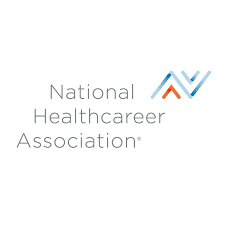
- May 2021
- Volume 89
- Issue 05
Techs Taking More Active Role in Preventing Poisonings

Pharmacy team members can provide educational resources, strategies to kids to promote safety.
Pharmacy technicians often relied on pharmacists to help with inquiries about accidental poisonings in the home.
Most technicians know the national number (1-800-222-1222) for accidental home poisoning calls that may be placed to a pharmacy. At times, poison prevention starts with pharmacy team members well versed in educational resources dedicated to teaching individuals what to do in a case of accidental poisoning.
The importance of this education extends throughout the year, though the third full week in March each year is National Poison Prevention Week (NPPW), which is dedicated to raising awareness of poison control centers. Local and state pharmacy organizations, as part of an initiative, can extend themselves as educators to groups of third-graders about what to look for in case of accidental poisoning in their homes. The team of pharmacists, pharmacy students, and technicians can obtain educational materials from the American Association of Poison Control Centers' website (aapcc.org) to plan a day of education for third-graders and teachers in their districts.
During NPPW, third-graders are given the opportunity to take on a different level of leadership and responsibility for their families. Involving these young people with different types of educational resources or strategies provided by pharmacy professionals can make a difference in their lives as they learn what to do in case of an accidental home poisoning.
Strategies for technicians to share with children (and adults) include identifying venomous vs nonvenomous animals, keeping cleaning agents in a locked cabinet, recognizing the differences between candy and medications, and when to call 911 vs the poison prevention number. Other strategies technicians can discuss with patients relate to liquid nicotine and tobacco poisoning, as well as safe medicine disposal.
More technicians are advancing themselves to take a more active role in community pharmacy programs. Whether through facilitating continuing education programs and local and state organization projects or volunteering at community centers to provide strategies to prevent poisonings, technicians can position themselves on the front lines of medication safety.
The National Healthcareer Association (NHA) is honored to partner with Pharmacy Times to educate and to advocate for pharmacy technicians. To learn more about NHA's resources for techs, visit
REFERENCE
1. National Poison Prevention Week 2021. American Association of Poison Control Centers. Accessed April 21, 2021. https://aapcc.org/nppw-2021
ABOUT THE AUTHOR
Paul Sabatini, MEd, CPhT, FCSHP, is senior markets pharmacy technician at Blue Shield of California in Sacramento.
Articles in this issue
over 4 years ago
May 2021: Rx Product Newsover 4 years ago
May 2021 Interactives: Case Studiesover 4 years ago
Inhaler Techniques Can Become Sloppy Over Timeover 4 years ago
OTC Product News: May 2021over 4 years ago
Generic Product News: May 2021over 4 years ago
Miscarriages Are Common Among Pharmacistsover 4 years ago
Clinical Pharmacology Update: Verquvo From Merck and Co, Incover 4 years ago
Incontinence Can Lead to Skin Problemsover 4 years ago
Implementing Pharmacogenomics Often Pay Dividendsover 4 years ago
Community Pharmacy Evolves to Provide Direct Patient CareNewsletter
Stay informed on drug updates, treatment guidelines, and pharmacy practice trends—subscribe to Pharmacy Times for weekly clinical insights.


























